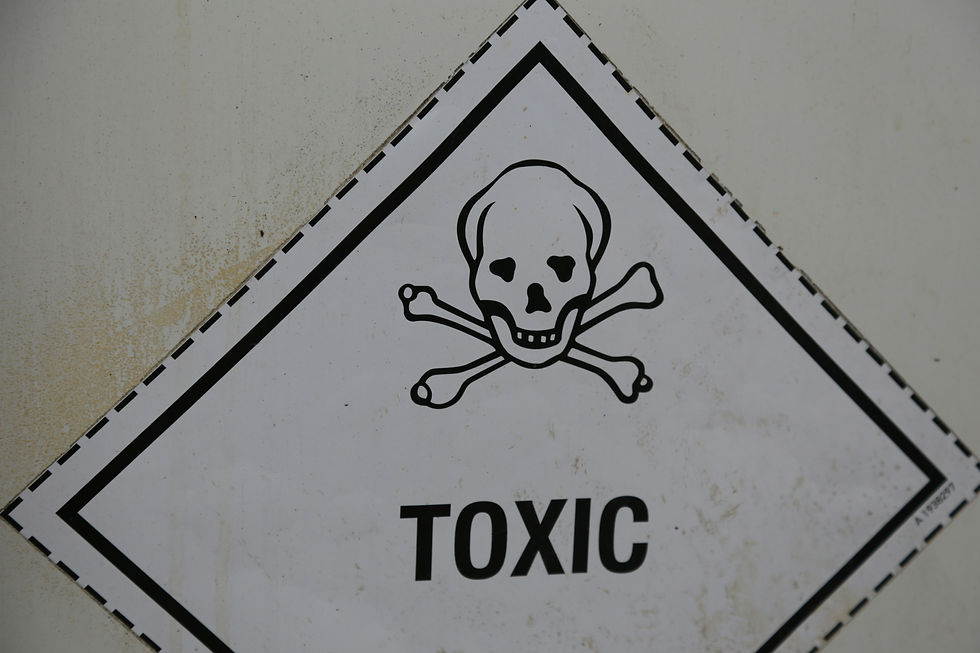The Invisible Struggles: Living With Relationship Trauma
- andersonabbiek
- Apr 11, 2025
- 4 min read

When we think of trauma, we often picture extreme or obvious events—accidents, violence, or catastrophic loss. But relationship trauma is different. It doesn’t always leave visible scars, yet it can shape how you see yourself, how you connect with others, and how safe you feel in the world.
Relationship trauma isn’t just about a single painful moment—it’s about the repeated emotional wounds that come from broken trust, manipulation, neglect, or feeling unseen and unworthy. And because these struggles aren’t always easy to recognize, many people suffer in silence, questioning whether what they’re feeling is even “real.”
If you’ve ever found yourself struggling with trust, fearing abandonment, or feeling emotionally disconnected in relationships, you are not alone. The effects of relationship trauma are real—even if no one else can see them.
What Is Relationship Trauma?

Relationship trauma occurs when someone you deeply trust—a parent, partner, friend, or authority figure—hurts, manipulates, or fails to protect you in ways that leave lasting emotional wounds.
It can come from:
💔 Toxic, controlling, or emotionally abusive relationships
💔 Being repeatedly dismissed, gaslit, or manipulated
💔 Neglect or abandonment (emotionally or physically)
💔 Growing up in an unstable or unsafe household
💔 Experiencing betrayal from someone you trusted
Unlike a single traumatic event, relationship trauma builds over time, often making it harder to recognize until the patterns are deeply ingrained.
The Invisible Ways Relationship Trauma Affects You
Because relationship trauma doesn’t leave physical evidence, it often shows up in subtle, everyday struggles that can be difficult to explain to others—even to yourself. Here’s how it can impact your life:
1️⃣ You Struggle with Trust & Fear of Being Abandoned
🔹 Even in loving relationships, you find yourself waiting for the moment when things will go wrong.
🔹 You second-guess people’s intentions, worrying they will hurt or leave you.
🔹 You may either cling tightly to relationships out of fear of being alone or push people away before they can hurt you.
🔥 Example: A friend cancels plans, and instead of seeing it as a one-time situation, you spiral into thoughts of “They don’t really care about me” or “I’m not worth prioritizing.”
💡 Why It Happens: When trust has been broken repeatedly, your nervous system stays on high alert, assuming that everyone will eventually let you down.
2️⃣ You Overextend Yourself to “Earn” Love
🔹 You feel like you have to be perfect, helpful, or always agreeable to be loved.
🔹 You say yes when you want to say no, fearing rejection if you set boundaries.
🔹 You prioritize others’ emotions over your own, even at your own expense.
🔥 Example: You take on extra work, handle others’ emotional burdens, or avoid expressing your true feelings because you fear that being too much or not enough will push people away.
💡 Why It Happens: When love has felt conditional or unstable, you may have learned that your worth is tied to how much you give.

3️⃣ You Feel Numb or Emotionally Disconnected
🔹 You struggle to fully engage in relationships, feeling emotionally shut down.
🔹 You avoid vulnerability, even when you want to connect.
🔹 You sometimes feel like you’re watching your life from the outside, unable to fully feel moments of joy or love.
🔥 Example: You’re in a healthy, loving relationship, but instead of feeling safe, you feel distant, unsure how to let your guard down.
💡 Why It Happens: If past relationships made vulnerability feel unsafe, your body may have learned to disconnect emotionally as a form of protection.
4️⃣ You Have a Deep Fear of Conflict & Disapproval
🔹 You go out of your way to keep the peace—even when it means silencing yourself.
🔹 You apologize excessively, even when you haven’t done anything wrong.
🔹 You avoid confrontation because it feels emotionally overwhelming.
🔥 Example: Someone crosses your boundaries, but instead of speaking up, you minimize your feelings or convince yourself it’s “not a big deal.”
💡 Why It Happens: If past relationships involved anger, emotional withdrawal, or rejection, your brain may have wired itself to believe that standing up for yourself leads to harm or abandonment.
Healing Relationship Trauma: Where Do You Start?

If any of this resonates with you, know that you are not broken. Relationship trauma shapes your emotional patterns, but it does not define you. Healing is possible, even if right now, it feels overwhelming.
Here’s where you can start:
✅ Recognize the Patterns – Awareness is the first step. Notice when old fears and survival mechanisms show up in your relationships.
✅ Rebuild Self-Trust – Your nervous system may be wired for hypervigilance or self-doubt, but you can retrain it through self-compassion, mindfulness, and grounding techniques.
✅ Set & Enforce Boundaries – You don’t have to earn love by over-giving. Healthy relationships respect your needs.
✅ Practice Emotional Regulation – Trauma-informed therapy, somatic healing, and nervous system work can help you feel safer in your body and relationships.
✅ Seek Support – You don’t have to do this alone. Trauma-focused therapy (like EMDR, IFS, or DBT) can help you process and release these wounds safely.
You Are Not Alone in This
The effects of relationship trauma may be invisible to others, but they are real. They shape how you connect, trust, and show up in relationships—but they do not define your future.
Healing is not about "fixing" yourself—it’s about reclaiming your sense of safety, self-worth, and the ability to love and be loved without fear.
💛 You deserve relationships that feel safe, fulfilling, and reciprocal. And healing is possible.
📌 Have you noticed relationship trauma patterns in your life? Let’s talk in the comments. ⬇️




Comments